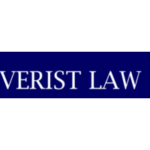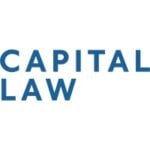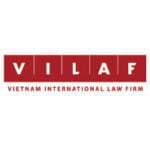-
Please briefly describe the regulatory framework and landscape of both equity and debt capital market in your jurisdiction, including the major regimes, regulators and authorities.
France being a member state of the European Union (“EU”), the legal basis for French capital markets is shaped to a very large extent by EU law. Other than EU regulations (directly applicable in France) and EU directives (transposed by French laws into the French legal framework), the main French national laws and regulations applicable to capital markets are the French commercial code (Code de commerce), the French monetary and financial code (Code monétaire et financier) and the general regulation established by the French Financial Markets Authority (Autorité des Marchés Financiers, “AMF”), i.e., the AMF General Regulation (Règlement Général de l’AMF).
AMF is an independent French public authority. It supervises the French financial markets and the market participants and sanctions the latter when required. AMF also publishes a body of additional texts called the “AMF doctrine”, ranging from instructions to recommendations and opinions (positions), which in practice are applied as hard law by the French regulator.
The European Securities and Markets Authority (“ESMA”) is the EU’s financial markets regulator and supervisor. ESMA publishes reports, guidelines and statements which guide the EU member state regulators like AMF when supervising the implementation of relevant capital markets regulations.
Securities are mainly traded on stock exchanges and multilateral trading facilities (“MTF”). The main platforms for trading listed shares or bonds in France are operated by Euronext S.A.:
- Euronext Paris, a stock exchange qualifying as a regulated market and divided into three segments based on the market capitalization of the issuers (segment A: above €1b; segment B: from €150M to €1b; and segment C: less than €150M) and a professional segment excluding retail investors;
- Euronext Growth Paris, an MTF qualifying as an organized MTF and an SME growth market;
- Euronext Access+ Paris, an intermediate MTF which is part of Euronext Access and is intended for start-ups and growing small and medium-sized companies (“SME”) to prepare before a listing transfer to Euronext Growth Paris or Euronext Paris;
- Euronext Access Paris, an MTF for companies seeking simplified access to the financial markets.
The trading of securities on the regulated market is very comprehensively regulated by law, at both EU and national levels; there are fewer legal requirements for trading on an MTF, although most important regulations must be observed on MTFs as well.
In this respect, both equity and debt capital markets are subject to Regulation (EU) No 2017/1129 on the prospectus to be published when securities are offered to the public or admitted to trading on a regulated market (the “Prospectus Regulation”) and Regulation (EU) No 596/2014 on market abuse (the “Market Abuse Regulation” or “MAR”) to prevent and sanction market abuse behaviors.
-
Please briefly describe the common exemptions for securities offerings without prospectus and/or regulatory registration in your market.
As a principle, a prospectus shall be published by the issuer (or the offeror if different from the issuer) when securities are (i) offered to the public and/or (ii) admitted to trading on a regulated market situated or operating within an EU member state. This means that any public offering of securities, whether or not such securities are traded on a listing venue, shall trigger the obligation to prepare and publish a prospectus. In practice, however, most public offerings of securities are made by issuers listed on Euronext Paris or Euronext Growth Paris. This also means that only the admission to trading on Euronext Paris triggers the obligation to publish a prospectus, while admission to trading on Euronext Growth Paris or other MTFs does not.
Various exemptions to the prospectus requirement apply to securities offerings, such as:
- securities offerings addressed solely to qualified investors within the meaning of EU regulations;
- securities offerings addressed to fewer than 150 natural or legal persons per EU member state (other than qualified investors);
- offers of securities whose denomination per unit amounts to at least €100k;
- securities offerings addressed to investors who acquire securities for a total consideration of at least €100k per investor, for each separate offer;
- securities offered in connection with a public exchange offer, merger, or demerger;
- dividends paid to existing shareholders in the form of shares of the same class as those giving entitlement to such dividends; and
- securities offered, allocated, or to be allocated to existing or former directors or employees by their employing company or by an affiliate;
- provided that an information document on the offer is made available, whose form and content vary from very short documents to prospectus-equivalent documents (e.g., the prospectus exemption document for securities offerings in connection with a merger).
On October 8, 2024, the EU Council adopted the EU Listing Act (the “Listing Act”) as part of a package of measures aiming to further develop the Capital Markets Union, mainly to make EU capital markets more attractive to companies and reduce burdens on them at the time of the IPO and after the IPO. Among other amendments, the Listing Act introduces reforms of the Prospectus Regulation with respect to securities offerings, and notably:
- since December 4, 2024, a new prospectus exemption for public offerings of securities offered for trading on a regulated market or an SME growth market (i.e., Euronext Growth Paris) representing less than 30% of the number of securities already admitted for trading on the same market, provided that (i) the issuer is not the subject of restructuring or insolvency proceedings, and (ii) an information document (maximum 11 pages, with standardized content) is made available;
- since December 4, 2024, a new prospectus exemption for public offerings of securities fungible with securities listed for more than 18 months on a regulated market or an SME growth market (i.e., Euronext Growth Paris),provided that (i) the issuer is not the subject of restructuring or insolvency proceedings, (ii) an information document (maximum 11 pages, with standardized content) is made available, and (iii) the shares are not allotted in connection with a public exchange offer, merger or demerger;
- as from June 5, 2026, an increased prospectus exemption threshold for public offerings of securities whose total volume does not exceed €12M (versus €8M before the implementation of the Listing Act), it being reminded that such threshold may be limited to €5M at the member state’s option.
Other exemptions to the prospectus requirement apply to the admission of securities to trading on a regulated market (i.e., Euronext Paris), such as when the admission concerns:
- securities representing less than 30% (versus 20% before the implementation of the Listing Act) of the number of the securities of the same class already admitted to trading on the same regulated market over a period of 12 months;
- securities allotted in connection with a public exchange offer, merger, or demerger;
- free shares and dividends paid out in the form of shares of the same class as the shares in respect of which such dividends are paid;
- securities offered, allocated, or to be allocated to existing or former directors or employees by their employing company or by an affiliate;
- provided that an information document (information sheet or prospectus exemption document, as applicable) is made available.
In addition, the Listing Act has introduces several reforms to the Prospectus Regulation with respect to the admission of securities to trading on a regulated market (i.e., Euronext Paris), such as:
- since December 4, 2024, a new prospectus exemption when the admission concerns securities fungible with securities listed for more than 18 months on a regulated market or an SME growth market, provided that (i) the issuer is not the subject of restructuring or insolvency proceedings, (ii) an information document (maximum 11 pages, with standardized content) is made available, and (iii) the shares are not being offered in connection with a public exchange offer, merger or demerger.
-
Please describe the insider trading regulations and describe what a public company would generally do to prevent any violation of such regulations.
Insider trading is essentially governed by the Market Abuse Regulation, its implementing regulations and delegated regulations, as well as by the positions and recommendations of ESMA and AMF.
The Market Abuse Regulation defines an inside information as an information of a precise nature, which has not been made public, relating, directly or indirectly, to one or more issuers or to one or more financial instruments, and which, if it were made public, would be likely to have a significant effect on the prices of those financial instruments or on the price of related derivative financial instruments.
The Market Abuse Regulation provides a general prohibition to engage or attempt to engage in insider trading. Consequently, any issuer shall make public, as soon as possible, inside information which directly concerns that issuer, unless it decides to defer publication under the below conditions:
- immediate publication is likely to harm the legitimate interests of the issuer;
- the delay in publication is not likely to mislead the public; and
- the issuer is able to ensure the confidentiality of the said information.
Note that as from June 5, 2026, following the implementation of the Listing Act, the second abovementioned condition, allowing an issuer to defer publication of an inside information where the delay in publication is not likely to mislead the public, will be replaced by the following condition: the inside information whose deferral is intended shall not be in contradiction with the last public announcement or another type of communication relating to the same matter as that to which the inside information relates. In addition, the Listing Act will exempt issuers from immediate publication of inside information relating to “the intermediate stages of a multi-stage process” (such as M&A processes). Only the final circumstances or events shall be disclosed, as soon as possible, after they have occurred.
If the issuer has deferred publication of inside information, it shall inform the AMF, which may subsequently request additional explanations.
The issuer shall also (i) draft a list of insiders in the form set out by the Implementing Regulation (EU) No 2016/347 of 10 March 2016, (ii) notify persons registered as insiders on such list, (iii) promptly update the insider list when necessary, and (iv) provide the insider list to AMF upon request.
The Market Abuse Regulation also provides for additional obligations to the issuer and its management team to prevent any market abuse behaviors, such as:
- PDMR transactions reporting: Person Discharging Managerial Responsibilities (“PDMRs”), mainly the CEO, chair and vice-chair of the board, and the directors, are required to notify AMF and the issuer of any order or transaction undertaken on personal account that relate to the issuer’s financial instruments. This applies to all financial instruments. The reporting requirement is extended to Persons Closely Associated to PDMRs (“PCAs”) (i.e., spouse, controlled company, trust beneficial to the PDMR, etc.);
- Negative windows: negative windows or closed periods, during which PDMRs are forbidden to carry out any transaction that relate to the issuer’s financial instruments, apply 30 calendar days before the announcement of (i) the year-end financial results and (ii) the half-year financial results of the issuer. AMF also recommends applying a 15-day negative window before the publication of quarterly information by the issuer (as the case may be). The issuer is authorized to extend the scope or the duration of the negative windows on a voluntary basis.
Finally, although it is not compulsory, it is highly recommended that issuers draw up a stock market code of conduct in order to inform corporate officers, top executive managers, and more generally senior managers and all employees who may have access to inside information, of the main applicable laws and regulations relating to the prevention of market abuses.
-
What are the key remedies available to shareholders of public companies / debt securities holders in your market?
As soon as they own shares in a listed company, shareholders acquire rights that enable them to participate in the life of the company, such as:
- Right to information: shareholders have the right to consult various legal and financial documents before the annual general meeting of the shareholders and more generally before any shareholders’ general meeting, such as the board of directors’ report, the statutory auditors’ report, the financial statements, and the resolutions to be proposed and voted at the general meeting. This right enables them to monitor the management of the company’s affairs and to express their views at the general meeting. Before the general meeting, shareholders can also ask written questions to the management to obtain further information on specific matters and, subject to holding a certain number of shares, can add draft resolutions on the agenda;
- Right to attend general meetings of shareholders: any shareholder can attend the shareholders’ general meeting of a company in which they hold shares;
- Voting right: all shareholders of a company have voting rights at the general meeting, in proportion to the number of shares they own, subject to exceptions (e.g., double voting rights, preferred shares with multiple voting rights or without voting rights);
- Right to dividends: if the company makes a profit, the decision to distribute part of the profits to shareholders may be taken at the general meeting, provided that the company accounts have been approved beforehand;
- Right to defend the company’s interests: shareholders can go to court on their behalf or on behalf of the company, subject to meeting specific criteria. They can also seek the cancellation of a decision or the dismissal of a member of the management if they consider that there has been serious mismanagement.
Debt security holders acquire rights that are significantly less important than equity holders, such as:
- Right to attend general meetings of bondholders: those meetings are competent to deliberate on all measures intended to ensure the defense of the bondholders and the performance of the bond issue agreement;
- Voting rights: bondholders may exercise their voting rights at general meetings of bondholders;
- Financial rights: the holder of a bond has financial rights which result, if the capital has not been repaid in full, in a right to interest, calculated on the nominal amount of the bond.
French law does not recognize bondholders’ individual right to information, but only a collective right, which is exercised through a collective representative body which has legal personality. The representative body has the power to carry out, on behalf of the group, all acts of management to defend the common interests of the bondholders. However, they may not interfere in the company’s management and, although they have access to general meetings of shareholders, they do not have the right to vote during such meetings.
-
Please describe the expected outlook in fund raising activities (equity and debt) in your market in 2025.
Equity issues continued to remain slow on the French market in 2024 and early 2025. Potential IPOs candidates and investors are still very cautious, preparing discretely and awaiting the right market window.
Euronext has launched the “IPOready 2025” program, involving over 160 companies from 11 European countries, with technology firms comprising 67% of participants. This initiative aims to prepare these companies for successful public offerings, indicating a robust IPO pipeline. Furthermore, the French government previously forecast that around 10 unicorns would be listed by 2025. Most of them do not seem ready yet (either because they have not yet reached the stage of profitability, or for reasons of size), meaning that IPOs are more likely to take place in H2 2025 or H1 2026.
However, government instability in France and worldwide “tariffs war” are creating additional instability for the financial markets, whether in France, Europe or in the United States.
Strategic planning and due diligence will thus be essential to navigate potential challenges and capitalize on emerging opportunities in the coming months.
-
What are the essential requirements for listing a company in the main stock exchange(s) in your market? Please describe the simplified regime (if any) for company seeking a dual-listing in your market.
The main requirements for listing a company on Euronext Paris are as follows:
- Publication of a prospectus approved by the AMF (or another EU member state regulator under a prospectus passport);
- Listing agent to be appointed;
- Free float: upon listing, at least 25% of the class of shares in respect of which application is made shall be distributed to the public (or at least 5% representing at least €5M); and
- Financial statements: the issuer shall have published or filed audited annual financial statements or pro forma accounts (consolidated, where applicable) for the preceding three financial years (unless the issuer is a recent company which has less than three closed financial years).
The main requirements for listing a company on Euronext Growth Paris are as follows:
- Publication of a prospectus, if required, or an information document;
- Listing sponsor to be appointed;
- Free float: a minimum amount of €2.5M shall be available for trading; and
- Financial statements: the issuer shall have published or filed audited annual financial statements or pro forma accounts (consolidated, where applicable) for the preceding two financial years (unless the issuer is a recent company which has less than two closed financial years).
The criteria set out above are supplemented by the below criteria in case of a dual listing on:
- Euronext Paris: Euronext shall have entered into an agreement with the regulated market on which the issuer’s securities are already listed that defines the specific conditions of dual listing;
- Euronext Growth Paris: the issuer shall provide Euronext Growth with a detailed description of its shareholders to prove that the securities have already been listed and a certificate from its listing sponsor showing that it has satisfied and continues to satisfy the reporting and disclosure requirements of the market on which its securities are already admitted to trading.
-
Are weighted voting rights in listed companies allowed in your market? What special rights are allowed to be reserved (if any) to certain shareholders after a company goes public?
French law rewards long-term shareholding by allocating double voting rights to shareholders. When a shareholder holds shares under their name in registered form (actions au nominatif) for more than two subsequent years, they are granted double voting rights on such shares for as long as they do not transfer such shares or convert them into bearer shares (actions au porteur). The double voting right allocation is automatic for French issuers whose shares are listed on Euronext Paris, except where the issuer’s by-laws exclude the application of this legal provision (opt-out mechanism). For French issuers listed on Euronext Growth Paris and other MTFs, double voting rights are allocated to eligible shareholders only if the issuer’s by-laws expressly mention this provision (opt-in mechanism).
In addition, French companies can issue non-voting preferred shares, whether listed or non-listed. In companies whose shares (whether ordinary or preferred) are admitted to trading on Euronext Growth Paris and other MTFs, non-voting preferred shares shall not represent more than 50% of the share capital, while they shall not represent more than 25% of the share capital in companies whose shares are admitted to trading on Euronext Paris.
Since 14 June 2024, French listed companies are authorized to issue preferred shares with multiple voting rights at the time of the IPO to a specific list of beneficiaries and for a duration of 10 years following the IPO, which can be extended by an additional 5-year period upon decision by the shareholders’ general meeting. Several limitations apply to this new mechanism, among which a ratio of maximum 25 voting rights for 1 voting right.
The Listing Act also proposes the adoption of a new EU directive on multiple voting share structures, which aims at enabling all European companies to issue multiple voting right shares at the time of their IPO.
-
Is listing of SPAC allowed in your market? If so, please briefly describe the relevant regulations for SPAC listing.
The listing of special purpose acquisition companies (“SPACs”) in France is permitted on the regulated market and on MTFs. There is no UE specific legal regime and, consequently, no French specific legal regime concerning SPACs as the general prospectus regulatory framework is sufficient at the time of the IPO and of the business combination (de-SPAC). Note that in practice, it was jointly decided by Euronext S.A., AMF, underwriters, and law firms to list units issued by SPACs on the professional segment of Euronext Paris from their IPO until their business combination, as units (comprised of convertible and redeemable preferred shares with redeemable share warrants attached) are considered complex securities requiring a certain experience on financial markets from targeted investors.
In its public statement of 15 July 2021, ESMA:
- notes that SPAC shares and warrants are, amongst other things, subject to the Directive No 2014/65/EU (MiFID II) requirements on product governance, and that, in light of the risk and complexity of SPAC shares and warrants, it expects manufacturers and distributors of SPAC shares and warrants to carefully scrutinize such products in their respective product approval process in order to assess whether retail clients should be excluded from the positive target market or even included in the negative target market; and
- considers that some of the applicable disclosure requirements are likely to have particular significance when determining whether a prospectus relating to a SPAC includes all the necessary information to allow an investor to make an informed investment decision, as required under the Prospectus Regulation. Therefore, ESMA encourages national competent authorities to focus their scrutiny of SPAC prospectuses on a number of requirements regarding (i) risk factors, (ii) the issuer’s strategy and objectives, (iii) escrow account and the reinvestment of the proceeds, (iv) relevant experience and principal activities of the administrative, management and supervisory bodies, (v) conflicts of interest with the sponsors, (vi) shares, warrants and shareholder rights, (vii) major shareholders, (viii) related party transactions, (ix) material interests, (x) information on the proceeds of the offer, (xi) information on the intention of certain persons to subscribe in the offer, and (xii) information on the offer price.
Thus, AMF pays particular attention to the following:
- the existence of commitments by the SPAC founders to retain their shares and the establishment of rules to manage conflicts of interest;
- the completeness, comprehensibility and consistency of information provided to investors. AMF pays for example attention to information relating to the sector of activity, risk factors, governance, and the management of possible conflicts of interest. European SPACs are not “blank-check companies” like in certain non-UE jurisdictions, as the description of the targeted sectors(s) shall indeed be very detailed in the prospectus and the SPAC by-laws, and the SPAC team is bound by this scope;
- the establishment of an escrow account for the funds raised during the IPO until the business combination and thus the possibility for investors to be reimbursed should the transaction not be completed or should they not wish to remain in the company after the business combination is completed;
- the procedures for approving the business combination and information disclosed to investors in this regard.
A prospectus is required at the time of the SPAC IPO and, most of the time, a prospectus will also be required at the time of the business combination, subject to applicable exemptions (e.g., merger) depending of the de-SPAC transaction structure, in addition to specific notices which will be published by the SPAC to inform its shareholders of the contemplated business combination and the share redemption procedure and timeline.
-
Please describe the potential prospectus liabilities in your market.
The information provided to the public in the prospectus shall (i) not be defective, i.e., it shall not contain false or misleading information, (ii) be accurate, (iii) be precise, and (iv) be fair.
That being said, in the event of inaccurate, imprecise, or unfair information, the issuer is liable to a fine of up to (i) €100M or (ii) ten times the amount of the benefit derived from the breach if it can be determined, or (iii) 15% of its annual turnover. With certain exceptions, the sanction decision is published on the AMF’s website, at the issuer’s expense.
Furthermore, the disclosure by any person, by any means, of information which gives false or misleading signals as to the situation or prospects of an issuer or as to the offer, demand or price of a financial instrument, or which determines or is likely to determine the price of a security at an unusual or artificial level, is punishable by (i) five years’ imprisonment and (ii) a fine of up to €100M, which may be increased up to ten times the amount of the benefit received as a result of the offence, or to 15% of its annual turnover (for a legal entity). The scope of application is broad, targeting the issuer, its management, the statutory auditors, etc.
-
Please describe the key minority shareholder protection mechanisms in your market.
In addition to the shareholders’ rights described in Question 4 above, minority shareholders are protected by the following mechanisms, which are based on the principle of shareholder equality.
Mandatory tender offer / mandatory buy-out offer (offre publique obligatoire):
- On Euronext Paris, a mandatory tender offer shall be launched by any person who: (i) crosses the threshold of 30% of the capital or voting rights or (ii) already holds between 30% and half of the capital and increases its holding by more than 1% in less than a year. On Euronext Growth Paris, the threshold triggering the mandatory offer is 50% of the capital or voting rights. In this case, the price offered by the offeror must be at least equal to the highest price paid by the offeror over the previous 12 months.
- When a public limited company (société anonyme) whose shares are admitted to trading on a regulated market is converted into a limited partnership with shares (société en commandite par actions), the person(s) who controlled the company prior to its conversion or the general partner(s) are required, as soon as the resolution to convert the company has been adopted by the shareholders’ general meeting, to launch a buy-out offer.
- Majority shareholders shall inform AMF when they intend to make significant changes (i) to the company’s by-laws (e.g., modification of the legal form or the conditions for the sale and transfer of equity securities and the rights attached thereto, etc.) or (ii) to its financial structure (e.g., merger with a company controlled by the majority shareholders, transfer of assets to another company, etc.). AMF examines the impact of the intended change on the rights and interests of the company’s shareholders and decides whether to require a public buy-out offer from the majority shareholders.
Mandatory sell-out offer (offre publique de retrait):
- If the majority shareholders hold at least 90% of the capital or voting rights of a company whose shares are admitted to trading on Euronext Paris, the minority shareholders may ask AMF to require the majority shareholders to make a mandatory buy-out offer, which is more like a sell-out offer at the minority shareholders’ request in this case.
-
What are the common types of transactions involving public companies that would require regulatory scrutiny and/or disclosure?
As a general rule, any significant transaction (whether in size or strategic) shall be communicated to the market by a press release, that shall be broadcasted through official wires and posted on the company’s website, as soon as a binding document is concluded (binding offer letter, agreement, etc.). See Question 3 above with respect to inside information, public disclosure, and deferred disclosure.
In addition, the completion of certain Public M&A transactions requires to prepare specific disclosure documents: this is notably the case for mergers and demergers (prospectus exemption document) or tender offers (subject to specific information documents approved by the AMF’s board).
The issue of equity securities, equity-linked securities or bonds requires most of the time the issuer to draft and publish a prospectus or, when prospectus exemptions are applicable, to draft a specific information document or issue a press release whose content is set out by the AMF doctrine. See Question 2 above regarding prospectus exemptions.
Finally, no matter the type of transaction, any direct or indirect crossing, upwards or downwards, of the legal thresholds of (i) 5%, 10%, 15%, 20%, 25%, 30%, 1/3, 50%, 2/3, 90%, and 95% of the capital or voting rights of an issuer whose shares are listed on Euronext Paris, or (ii) 50% and 90% of the capital or voting rights of an issuer whose shares are listed on Euronext Growth Paris, by a shareholder acting alone or in concert, must be reported to the company and AMF. Additional thresholds might be set out in the issuer’s by-laws, whose crossing shall be reported only to the company.
-
Please describe the scope of related parties and introduce any special regulatory approval and disclosure mechanism in place for related parties’ transactions.
To prevent conflicts of interest, French corporate law imposes strict controls, in the form of a requirement for prior authorization, on agreements entered into between a French company and its “Related Parties”. Any agreement (including amendments or renewals) entered into, directly or through an intermediary, between a company and its corporate officers or shareholders holding more than 10% of the voting rights or, in the case of a corporate shareholder, the company controlling it, shall be (i) subject to prior authorization by the board of directors, (ii) communicated to statutory auditors so they can issue a special report, and (iii) subject to subsequent approval by the shareholders’ general meeting.
The same applies to agreements in which (i) one of the persons referred to in the previous paragraph has an indirect interest or (ii) one of the corporate officers of the company is an owner, partner with unlimited liability, manager, director, member of the supervisory board or a manager of this company.
If the company’s shares are listed on Euronext Paris, a specific disclosure is made on its website of the main terms and conditions of the agreement on the day it is executed or amended.
Certain agreements may be entered into freely and are not subject to the above-mentioned internal control procedure. This concerns agreements entered into in the ordinary course of business and on arm’s length terms, which are assessed on a case-by-case basis by the company’s board of directors, or agreements concluded with a wholly-owned subsidiary.
Related parties’ agreements entered into and authorized during previous financial years which remained in force during the last financial year shall be reviewed each year by the board of directors and reported to the statutory auditors. Also, companies whose shares are listed on Euronext Paris shall implement a specific annual review of the agreements entered into the ordinary course of business to confirm whether they still qualify as such.
All listed companies shall shortly describe related parties’ agreements in their yearly financial reports, it being specified that the scope of the terms “related parties’ transactions” is broader under accounting standards than under the legal provisions mentioned above. Related parties’ transactions are also part of information that needs to be provided when publishing a prospectus.
Certain other agreements entered into between a company and, whether directly or through an intermediary, “related parties”, are totally prohibited. For example, the company shall not (i) grant a loan or open a debit current account on behalf of its “related parties”, as it may constitute misuse of corporate assets, or (ii) have their commitments to third parties guaranteed or endorsed.
-
What are the key continuing obligations of a substantial shareholder and controlling shareholder of a listed company?
Substantial or controlling shareholders of listed companies have no specific legal obligations due to their level of shareholding, except to disclose any significant shareholdings as any other investors. See Question 11 above in this respect.
French case law nevertheless ensures that shareholders do not use their position of control or substantial shareholding to take decisions that are contrary to the interests of the company and minority shareholders in the context of what is known as an “abuse of majority voting rights” (abus de majorité), or that would give rise to conflicts of interest.
Abuse of majority voting rights requires two elements which are generally considered to be cumulative:
- the corporate decision must be contrary to the company’s interests; and
- it must intentionally breach equality between shareholders, with the sole aim of procuring an advantage for the substantial/controlling shareholder (or group of majority shareholders), which the minority shareholders are deprived of.
In practice, abuse of majority voting rights is most often invoked in the event of a decision by the shareholders’ general meeting to:
- systematically set aside profits, to the detriment of dividend distribution;
- carry out a capital restructuring operation, such as an “coup d’accordéon” which consists of a significant capital reduction followed by a capital increase; or
- increase the manager’s compensation to an exaggerated amount, especially when the management of the company proves to be disastrous.
French corporate law also monitors conflicts of interest situations when a significant shareholder enters into an agreement with the company. See Question 12 above regarding related parties’ transactions.
-
What corporate actions or transactions require shareholders’ approval?
Save for amendments to the company’s by-laws to comply with regulatory provisions that may be carried out directly by the Board of Directors or the Supervisory Board in public limited companies (sociétés anonymes), any changes to the company’s by-laws require shareholders’ approval at an Extraordinary General Meeting (“EGM”) in compliance with the applicable majority rules, depending on the corporate form. In the case of a public limited company (société anonyme), which is the most common legal forms for French listed companies, decisions require a two-thirds majority of the votes cast by the shareholders present or represented during the EGM.
All transactions affecting the company’s share capital entail amendments to the by-laws and must therefore be approved by shareholders at an EGM, it being specified that the EGM usually grants delegations of authority or delegations of powers to the board of directors to that effect. These transactions include, but are not limited to, capital increases, issues of equity-linked securities giving access to new shares, mergers, demergers, etc.
As per the AMF doctrine and certain corporate governance codes (AFEP-MEDEF code, AFG code), the sale of significant assets by a company whose shares are listed on Euronext Paris should also be subject to shareholders’ approval at an Ordinary General Meeting, with such approval requiring a 50% majority of the votes cast and being an advisory vote.
-
Under what circumstances a mandatory tender offer would be triggered? Is there any exemption commonly relied upon?
On Euronext Paris, a mandatory tender offer shall be submitted by any person who: (i) crosses the threshold of holding 30% of the capital or voting rights or (ii) already holds between 30% and half of the capital and increases its holding by more than 1% in less than a year. On Euronext Growth Paris, the threshold triggering the mandatory offer is 50% of the capital or voting rights. In this case, the price offered by the offeror must be at least equal to the highest price paid by the offeror over the previous 12 months. AMF may request or authorize a price adjustment in certain cases.
Mandatory buy-out offers and mandatory sell-out offers can also be triggered under other circumstances. See Question 10 above in this respect.
There are a dozen cases set out in the AMF General Regulation under which the AMF board may grant an exemption to a mandatory tender offer. Some are more commonly invoked but the decision of the AMF board is made on a case-by-case basis, with the view to protecting the minority shareholders, and can be appealed to the Paris Court of Appeal.
-
Are public companies required to engage any independent directors? What are the specific requirements for a director to be considered as “independent”?
While French law provides that companies whose shares are listed on Euronext Paris “may voluntarily” refer to a corporate governance code and, if they do, are required to comply to such code or explain the reasons why they do not comply with certain provisions (i.e., “comply or explain” principle), AMF strongly recommends listed companies to adopt a corporate governance code. The two most popular codes are the AFEP-MEDEF code, tailored for blue chip companies listed in Segment A of Euronext Paris (mainly CAC40 companies), and the Middlenext code, tailored for SMEs listed on Euronext Paris or Euronext Growth Paris, including family-owned companies. Not all SMEs refer to a code, especially SMEs which have been listed for a long time on Euronext Growth Paris or other MTFs.
Under the AFEP-MEDEF code, independent directors should account for half the board members in widely held companies with no controlling shareholders, and for at least a third of the board members in controlled companies. Under such code, independence is assessed based on the following criteria:
- not to have held an office or a position within the company or the group during the last five years;
- not to be a customer, supplier, commercial banker, investment banker or consultant that is significant to the company or to which the company is a significant client;
- not to have close family ties with a corporate officer;
- not to have been a statutory auditor of the company during the last five years;
- not to have been a director of the company for more than twelve years.
Under the Middlenext code, at least two board members shall be independent, with such independence being assessed based on the following criteria:
- not to have been in the last five years and not to be an employee or executive officer of the company or a company in its group;
- not to have been within the last two years and not to be in a significant business relationship with the company or its group (customer, supplier, competitor, service provider, creditor, banker, etc.);
- not to be a reference shareholder of the company or hold a significant percentage of voting rights;
- not to have a close family relationship with a corporate officer or a reference shareholder;
- not to have been the company’s statutory auditor for the last six years.
-
What financial statements are required for a public equity offering? When do financial statements go stale? Under what accounting standards do the financial statements have to be prepared?
If a prospectus is required in connection with an equity offering, audited financial statements for the last three financial years, or the last two financial years if the issuer is an SME, shall be provided to AMF and included in the prospectus. This requirement includes the company’s financial statements or, if applicable, the consolidated financial statements. For companies listed or to be listed on Euronext Paris, the consolidated financial statements must be prepared in accordance with IFRS, while IFRS or French GAAPs can be used by companies listed or to be listed on Euronext Growth Paris or other MTFs.
In addition, unaudited interim financial information shall be provided if the prospectus’ date of approval by AMF will be more than nine months after the date of the last audited annual financial statements. They shall cover the first six months of the new financial year. Also, in specific situations, pro forma financial statements can be required to provide investors with a better picture of the financial structure if the accounting perimeter has significantly changed.
-
Please describe the key environmental, social, and governance (ESG) and sustainability requirements in your market. What are the key recent changes or potential changes?
The main ESG and sustainability requirements in France are set out in the French Commercial Code and are binding on certain companies. They relate to (i) the publication by certain listed companies of a sustainability report following the transposition of the Non-Financial Reporting Directive 2014/95/EU (“NFRD”) and the Corporate Sustainability Reporting Directive (UE) 2022/2464 (“CSRD”) and (ii) the establishment by certain listed companies of a due diligence plan pursuant to French law of 27 March 2017 on parent companies’ duty of care and the new EU Corporate Sustainability Due Diligence Directive (“CSDD”), which will need to be transposed in French law in the coming years.
With respect to reporting, NRFD required listed companies exceeding certain threshold criteria to publish a declaration of extra-financial performance and has recently been replaced by CSRD, which provides for the publication of sustainability information. The sustainability information is more comprehensive and becomes applicable progressively to companies from 2024 (for listed companies exceeding certain thresholds) to 2028 (for SMEs). The content of these requirements is based on the European Sustainability Reporting Standards.
In terms of due diligence, French law requires companies that exceed certain threshold criteria to publish and implement a due diligence plan and disclose such information in the yearly financial report (which includes the board’s management report). Recently adopted CSDD will harmonize this obligation on a European scale.
-
What are the typical offering structures for issuing debt securities in your jurisdiction? Does the holding company issue debt securities directly or indirectly (by setting up a SPV)? What are the main purposes for issuing debt securities indirectly?
The most typical debt offering from “corporate issuers” is bond loans, whether in stand-alone bond issues, Euro Medium Term Notes (“EMTN”) programs, or Euro Private Placements (“Euro PP”).
The usual offering structures for issuing debt securities in France include direct issuance by the company or indirect issuance via a special purpose vehicle (“SPV”). Companies may choose to issue debt securities directly, which is common for large, highly creditworthy companies. However, indirect issuance via an SPV allows for more complex financing structures. It enables the company controlling the SPV to offer securities with a differentiated risk/return profile to investors. The main objectives of indirect issuance of debt securities are to isolate and reduce risk separating them from the rest of the group’s balance sheet. Such issuance scheme also allows to improve financing conditions (notably by improving the credit rating of the debt issued by the SPV versus the parent company’s own debt, benefiting from the ring-fencing of risks). Finally, indirect issuance may be better perceived by investors, since it benefits from the clarity and transparency provided by an SPV, particularly if the debt is related to a specific project, or asset class.
-
Are trust structures adopted for issuing debt securities in your jurisdiction? What are the typical trustee’s duties and obligations under the trust structure after the offering?
French law does not recognize the legal status of the trust. However, French law has developed similar legal structures, such as fiducie (i.e., a French law-based trust) and fonds commun de titrisation (i.e., a securitization fund). The fiducie enables assets to be transferred to a fiducie agent (fiduciaire) for the benefit of a beneficiary. It protects the assets transferred to the fiducie by isolating them from the issuer’s financial risks and enables flexible asset management. It is particularly useful in the event of insolvency proceedings.
The fiducie can be a fiducie-gestion (management fiducie), where the fiduciaire must protect the debt securities it has been entrusted with and manage them as if they were its own under the terms and conditions specified in the fiducie agreement. The fiducie can also take the form of a fiducie-sûreté (guarantee fiducie), with the view to setting up a strong guarantee to the benefit of the debt securities holders in case of default of the issuer. In this second case, the fiduciaire mainly conducts a mission of protecting the assets transferred to the fiducie, making them almost unseizable by other creditors of the issuer, before releasing such secured assets to the beneficiaries under specific conditions when the fiducie reaches its term.
-
What are the typical credit enhancement measure (guarantee, letter of credit or keep-well deed) for issuing debt securities? Please describe the factors when considering which credit enhancement structure to adopt.
Depending on the debt offering structure (direct or through an SPV), its principal amount and other factors relating to the issuer or its group (credit rating, financial soundness, existence of other secured financings, type of assets and their liquidity, etc.), different type of credit enhancement measures will be required from the issuer. To the exception of certain issuers (securitization funds, project finance companies, property companies, credit institutions, etc.) which will be used to offering specific debt securities such as covered bonds, asset-backed securities (“ABS”), or collateralized loan obligations (“CLOs”), the most common forms of credit enhancement for corporate bonds such as stand-alone bonds, EMTNs and EuroPP bonds include a guarantee by a third party (majority shareholder, parent company or subsidiary of the issuer).
-
What are the typical restrictive covenants in the debt securities’ terms and conditions, if any, and the purposes of such restrictive covenants? What are the future development trends of such restrictive covenants in your jurisdiction?
Terms and conditions of debt securities typically include financial covenants, negative pledges, limitation on additional indebtedness, restrictions on dividends, activities, investments and divestments, and change-of-control clauses. Their purpose is to ensure that the issuer maintains a sound financial position, or to protect creditors against the risks associated with a sudden and potentially destabilizing change.
Financial regulators are strengthening transparency and investor protection requirements, leading to more detailed and binding clauses. The new clauses also include requirements linked to digitalization and ESG criteria, even when the debt securities are not “ESG bonds”. ESG clauses in the issuance agreement may oblige the issuer to meet certain sustainability targets, such as improving governance practices, reaching out a certain stage in its decarbonation process, or disclose ESG risks regularly, etc.
-
In general, who is responsible for any profit/income/withholding taxes related to the payment of debt securities’ interests in your jurisdiction?
In France, companies pay corporate income tax at 25% (impôt sur les sociétés, “IS”) on interest on debt securities, while individuals declare them as part of their income tax (impôt sur le revenu, “IR”) according to two options: the progressive scale of IR or the 12.8% rate-tax (prélèvement forfaitaire unique, “PFU”), also known as “flat tax”. Interest income paid to individuals is also subject to social security contributions at the overall rate of 17.2%, bringing the total taxation to 30% when subject to the PFU. Such taxes/contributions of 30% are generally first levied at source by the interest payor and, to avoid double taxation, they can be offset against the final tax burden of the taxpayer for a given year, which includes the interest income.
Interest paid to non-residents companies or individuals are generally exempt of withholding tax pursuant to French domestic law. As an exception, interest can be subject to a 75% withholding tax if paid to an account situated in a so-called black-listed country (the list of which is updated every year; for 2024 it includes in particular Russia, Panama, Bahamas, Trinidad and Tobago and a few other small jurisdictions).
-
What are the main listing requirements for listing debt securities in your jurisdiction? What are the continuing obligations of the issuer after the listing?
With respect to prospectus requirement or, where applicable, prospectus exemptions, the same rules apply to equity securities, equity-linked securities, and debt securities, although debt securities offerings will often use exemptions based on the securities’ minimum denomination of at least €100k or the minimum subscription amount of at least €100k. The first part of the prospectus, presenting information relating to the issuer, is identical for equity issues and debt issues; the second part of the prospectus, relating to the offered securities is different. See Question 2 above regarding prospectus requirement and exemptions.
The listing requirements and process differ whether the debt securities are corporate bonds, asset-backed securities, covered bonds, high-yield bonds, EMTNs, commercial papers, or ESG bonds.
The main requirements for listing bonds on Euronext Paris are as follows:
- Publication of a prospectus approved by the AMF (or another EU member state regulator under a prospectus passport);
- Minimum nominal amount of the bonds issue on admission: €5M in case of a public offering of bonds or €200k for all other types of admission of bonds (i.e., without any public offering), it being specified that these minimum amounts do not apply in the case of tap issues where the amount of the issue is not fixed;
- Pari passu ranking and admission of all bonds of the same class;
- Issuers qualifying as SMEs requesting an admission to trading of bonds via a public offering shall obtain a credit rating.
The main requirements for listing bonds on Euronext Growth Paris are as follows:
- Publication of a prospectus, if required, or an information document;
- Listing sponsor to be appointed in certain cases;
- Minimum nominal amount of the bonds issue on admission: €200k, except if all bonds of the same class are already listed, and it being specified that this minimum amount does not apply in the case of tap issues where the amount of the issue is not fixed;
- Pari passu ranking and admission of all bonds of the same class.
Provisions of the Market Abuse Regulation, including the disclosure obligation as soon as inside information arises, apply to bond issuers and bonds. See Question 3 above regarding market abuse regulation.
Continuing obligations of bond issuers are less burdensome than those of equity securities issuers. Their main obligation is to publish a yearly financial report and a half-yearly financial report.
France: Capital Markets
This country-specific Q&A provides an overview of Capital Markets laws and regulations applicable in France.
-
Please briefly describe the regulatory framework and landscape of both equity and debt capital market in your jurisdiction, including the major regimes, regulators and authorities.
-
Please briefly describe the common exemptions for securities offerings without prospectus and/or regulatory registration in your market.
-
Please describe the insider trading regulations and describe what a public company would generally do to prevent any violation of such regulations.
-
What are the key remedies available to shareholders of public companies / debt securities holders in your market?
-
Please describe the expected outlook in fund raising activities (equity and debt) in your market in 2025.
-
What are the essential requirements for listing a company in the main stock exchange(s) in your market? Please describe the simplified regime (if any) for company seeking a dual-listing in your market.
-
Are weighted voting rights in listed companies allowed in your market? What special rights are allowed to be reserved (if any) to certain shareholders after a company goes public?
-
Is listing of SPAC allowed in your market? If so, please briefly describe the relevant regulations for SPAC listing.
-
Please describe the potential prospectus liabilities in your market.
-
Please describe the key minority shareholder protection mechanisms in your market.
-
What are the common types of transactions involving public companies that would require regulatory scrutiny and/or disclosure?
-
Please describe the scope of related parties and introduce any special regulatory approval and disclosure mechanism in place for related parties’ transactions.
-
What are the key continuing obligations of a substantial shareholder and controlling shareholder of a listed company?
-
What corporate actions or transactions require shareholders’ approval?
-
Under what circumstances a mandatory tender offer would be triggered? Is there any exemption commonly relied upon?
-
Are public companies required to engage any independent directors? What are the specific requirements for a director to be considered as “independent”?
-
What financial statements are required for a public equity offering? When do financial statements go stale? Under what accounting standards do the financial statements have to be prepared?
-
Please describe the key environmental, social, and governance (ESG) and sustainability requirements in your market. What are the key recent changes or potential changes?
-
What are the typical offering structures for issuing debt securities in your jurisdiction? Does the holding company issue debt securities directly or indirectly (by setting up a SPV)? What are the main purposes for issuing debt securities indirectly?
-
Are trust structures adopted for issuing debt securities in your jurisdiction? What are the typical trustee’s duties and obligations under the trust structure after the offering?
-
What are the typical credit enhancement measure (guarantee, letter of credit or keep-well deed) for issuing debt securities? Please describe the factors when considering which credit enhancement structure to adopt.
-
What are the typical restrictive covenants in the debt securities’ terms and conditions, if any, and the purposes of such restrictive covenants? What are the future development trends of such restrictive covenants in your jurisdiction?
-
In general, who is responsible for any profit/income/withholding taxes related to the payment of debt securities’ interests in your jurisdiction?
-
What are the main listing requirements for listing debt securities in your jurisdiction? What are the continuing obligations of the issuer after the listing?

















